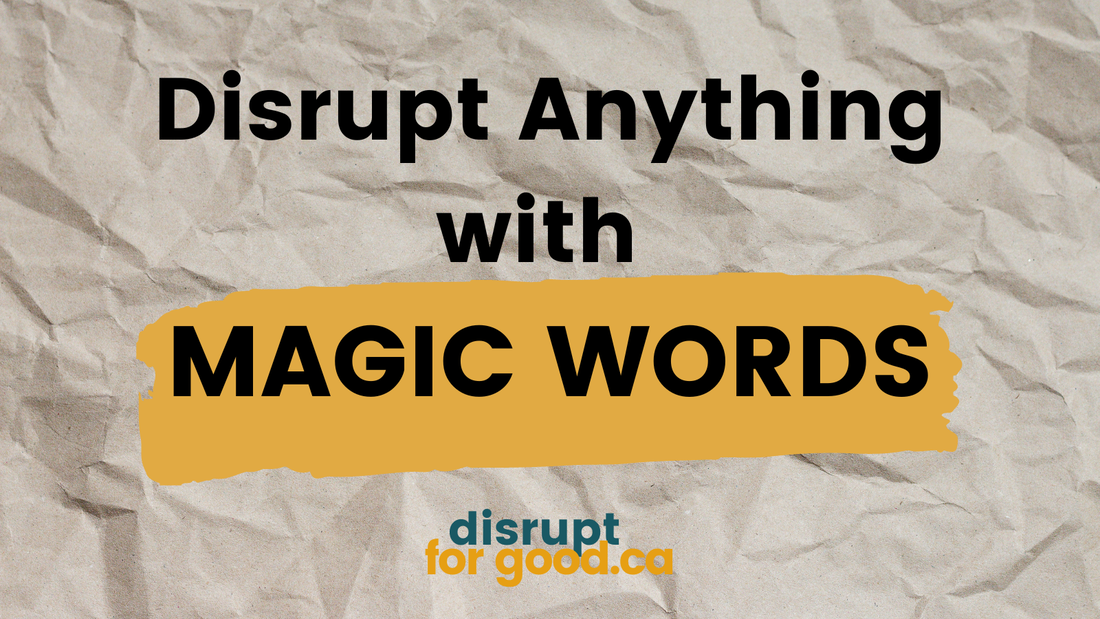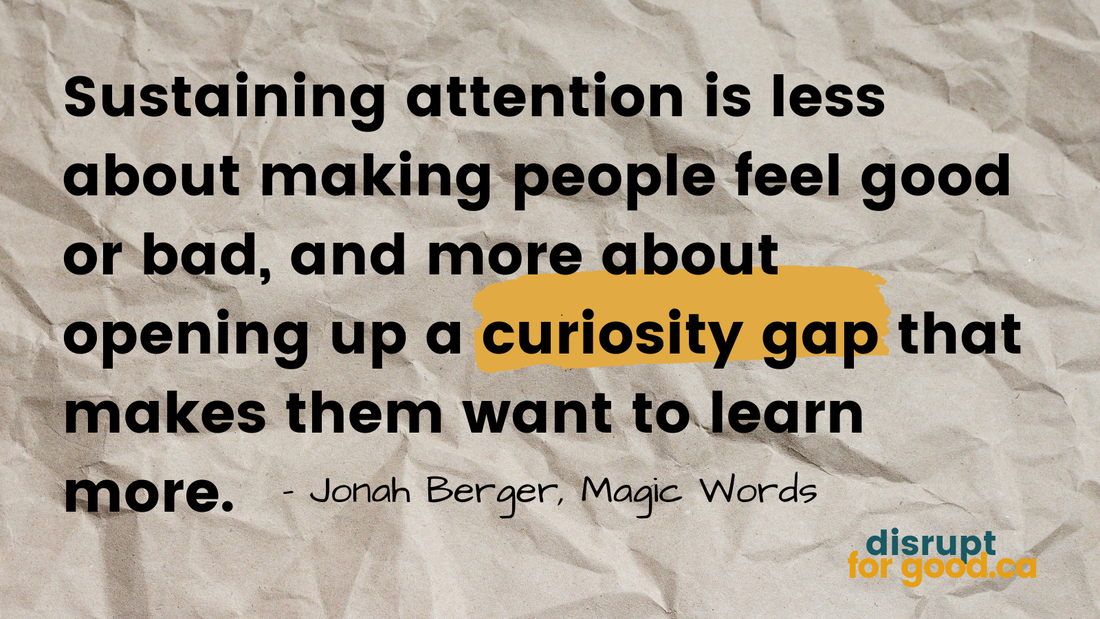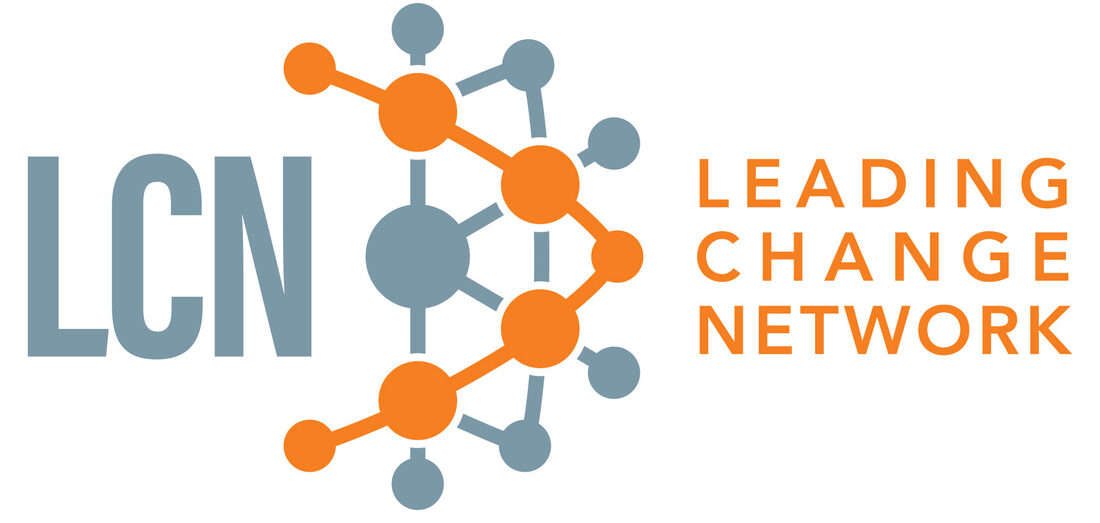|
As soon as I saw this book in an airport bookstore, I added it to my TBR pile. Magic Words: What to Say to Get Your Way, by Jonah Berger. Are you kidding me? Take my money. Getting my way is one of my most favourite things. Berger notes that we use around sixteen thousand words each day (some of us more…). But while we spend a lot of time using language, we give relatively little thought to the specific words we use.We may think our ideas are most important, and the words we use are inconsequential. But we would be wrong. Berger lays out a number of tips and tricks to help us communicate more effectively, some small and some big, and all backed by studies. As usual, if this sounds like your jam, you should totally read the book. If you’re short on time or attention for the whole book but interested in tips to be a more influential communicator, my favourite three takeaways are below. 1. Turning Actions Into Identities Berger starts out with an easy one to implement: using nouns instead of verbs to entice people to join us. He cites a study where one group of children were asked to help, and one group was asked to “be a helper.” Guess which group left their toys to go clean up? The ones invited into the identity of a helper. Another example Berger provides: “Rebecca goes running. Fred is a runner. Who do you think likes running the most?” Likewise, “Losing is bad. Being a loser is worse.” “Across a variety of topics and domains, research finds that turning actions into identities can shape how others are perceived. Changing a verb-based description (drinks coffee) to a noun (is a coffee drinker) made it seem like that person’s attitudes or preferences were…part of someone’s identity, rather than just an attitude they happen to hold.” A useful application of this concept for us disruptors is the ability to use it to change behaviour: “If people want to look certain ways, then framing certain actions as opportunities to confirm desired identities can encourage them to behave accordingly.” So in our work, this could look like reviewing our newsletters, websites, and calls to action to update invitations to support, vote, or help to invitations to be a supporter, a voter, or a helper. Doing so gives our audience a chance to not just take an action but an opportunity to claim a positive identity. 2. Turning Pasts Into Presents Lots of us give at least some consideration to our choice of verbs when drafting persuasive communication pieces - but we probably don’t think about the tense of the verb as being important. Berger says that a shift in verb tense can influence persuasion: specifically, using present tense is more persuasive than past tense. Consider “the book was good” compared to “the book is good.” “The plumber did a good job” compared to “the plumber does a good job.” Words like is and does are in the present tense and are more persuasive. Berger explains this by noting that past tense suggests something was true at a particular point in time. It also conveys more strongly that it was our subjective opinion based on a particular personal experience. Subjectivity + transience = less of a strong endorsement. “Present tense, in contrast, suggests something more general and enduring. Saying something works well suggests not only that it worked well in the past, but that it continues to work well and will continue to do so in the future. … Rather than a subjective opinion based on a particular person or experience, present tense suggests something more stable. … It’s not just one person’s past experience, others will have a similar experience in the future.” Increase your influence by turning pasts into presents. 3. Holding Attention Keeping an audience engaged is challenging. And while clickbait tactics might grab attention, they rarely sustain attention. Attracting and holding attention are two very different things, and we want our audiences to consume our content, not just glance at it. Employing emotional language can help here. Importantly, certainty and attention seem to be linked. In the study, Berger and his colleagues found that language that evoked uncertain emotions (like surprise, hope, or anxiety) led readers to keep reading, while language that evoked certain emotions (like disgust, happiness, or anger) had the opposite effect. “Uncertainty led readers to stick around to resolve what they didn’t know.”
Some topics may be more naturally interesting than others, but using the right magic words can encourage attention to anything. Berger notes that this is good news for people and organizations trying to deepen engagement around less sexy subject matter. Style can compensate for the topic with some effort. (Unfortunately, he doesn't get into as much detail as I would have liked about exactly how to do this - I'm going to be playing around with this in my own writing over the next little while.) “Too often, we think facts are the right way to persuade [and we] fill presentations with endless statistics to show something is important. And facts are useful. Sometimes. But just as often they lull an audience to sleep. It’s tough to persuade people if we can’t hold their attention. Emotional language can help … get them to care and pay attention.” Berger cautions that while emotional language can deepen engagement, picking the right emotion is key. It’s not just about making people feel good or bad with positive or negative words. “Sustaining attention is less about making people feel good or bad, and more about opening up a curiosity gap that makes them want to learn more. Uncertain emotions, or uncertain language more generally, keep people engaged. If people already know who is going to win the game, there’s no reason to watch the rest, but if the outcome is up in the air, they may stay tuned to find out.” Most people want to be more effective communicators. Jonah Berger’s book Magic Words is a veritable buffet of tips to help us do just that. Try them out at home or at work - and let me know how it goes!
0 Comments
Leave a Reply. |
AuthorI'm Jennifer. I am an advocacy and communications strategist working with multiple charities and nonprofits. And I want to disrupt our sector for good. Archives
April 2024
Categories |



 RSS Feed
RSS Feed
